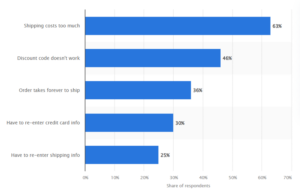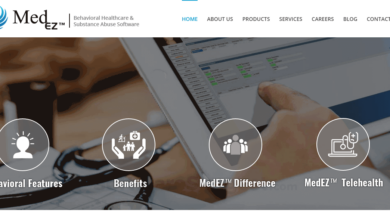Security for Landing Pages: 5 Nifty Tips to Follow!

Introduction
Have you recently posted any information about your marketing campaign that attracts thousands of visitors to your website’s landing page? Hence, your landing page is a one-stop factor in ascertaining whether the potential customer will convert!
After keeping everything in check, your visitor might feel uneasy about providing their personal information, which leads to non-conversion. With the surging number of security breaches and online scams, it’s no wonder that people are wary of buying from a business website. Therefore, it’s your responsibility to mitigate the fears of your potential and existing customers and provide them with an elevated sense of security.
Statista’s survey demonstrated that 17% of visitors leave a business website instantly prior to converting into customers due to some security-related concerns.

U.S. digital shopper reasons for abandoning carts 2018 | Statista
Another study by Generali Global Assistance showed in the 2020 holiday shopping survey that 30% of Americans avoided online shopping because of security threats.
Alternatively, if your landing pages are unsafe, you will inevitably lose out on conversions. Then, how to maintain landing page security? It’s not rocket science! Below are the best tips to secure your marketing landing page. So, let’s get started!

What Is a Landing Page?
Prior to diving into the nifty landing page security tips, let’s consider what a landing page is and its purpose. For example, if you intend to run a Facebook marketing campaign for your service or product, you will generate a link for your target audience to know more about the service or product. So, a landing page is a single webpage typically led to by the potential customer.
One of the basic objectives of a landing page is to give your potential customers a particular CTA. You might want them to purchase a product, register a free account, or subscribe to your newsletter. Your landing page might boost conversion rates and ROIs if everything is executed well.
The researchers have discovered that 48% of landing pages consist of more than one offer, and it’s pretty perplexing for the target audience leading to poor conversion metrics. Another strategy is to use captivating content to make your landing page look beautiful. 30% of landing sites contain video material, and these pages perform better than those without visuals.
Tips for Landing Page Security
These are the 5 proven tips for reinforcing your lead-generating landing page security:
1. Install security plugins and software
A landing page remains associated with the main website. Hence, if a website’s main pages have unsettled security issues, your landing pages are at stake too! Due to this, a hacker gets unauthorized access to your site by using an automated script to create possible passwords.
But you can impede this situation and boost the security of your landing page by installing security plugins. They will safeguard your website from hacking attempts, phishing attacks, brute force attacks, and adware. You can spot any malicious activity by installing security plugins on your website, such as Jetpack, WPscan, and WordFence.
2. Install SSL Certificate
The lack of a padlock symbol on your website is the most significant security loophole for the visitors as well as your website. Because of this primary concern, Google Chrome and other renowned browsers mark a site “Not Secure” if they don’t have an SSL certificate installed. Hence, the most vital landing page security tip is to install an SSL certificate, such as Domain validation, EV (extended validation) SSL Certificate, and Wildcard SSL Certificate on your server to boost your conversion rate.
3. Set Up Real-time Alerts
As a malicious attack on your website could ensue anytime, you must be vigilant by setting up real-time alerts. These alerts inform you of skeptical activity on your landing page when they occur so that you can take corrective actions asap.
Most security plugins and CMS have a feature of real-time alerts that send you an email or SMS when a perpetrator tries to infiltrate your website without authorization. These real-time alerts could be a lifeguard that impedes you from experiencing severe damages and losses to your reputation, which you could have neglected earlier.
4. Encrypt Your Code
One of the biggest reasons people scrape or rip landing pages isn’t because they can’t devise authentic ideas themselves; rather, they’re not well-acquainted with the codes. You can use this wonderful HTML Encrypter and put in your landing page to generate a programming mess that is so unpleasant that the majority of individuals won’t take a moment to find out what’s happening in order to muddle up a little effort for the less-advanced scraper!
5. Use a CDN
You can boost landing page security by using a CDN. CDNs are crafted to make quick access to your website easy for all users globally. You can access different global servers after signing up for the content delivery network. It also comes loaded with several edge servers, which help restrict potential Denial of Service or DOS assaults on your landing pages.
Conclusion
A landing page is vital for the success of advertising campaigns. All you need to ensure is to build top-notch landing pages that will convert. Therefore, in order to make a fantastic landing page, you must consider its security. With the help of 5 tips mentioned above for landing page security, there are no qualms about converting prospects into existing customers!



